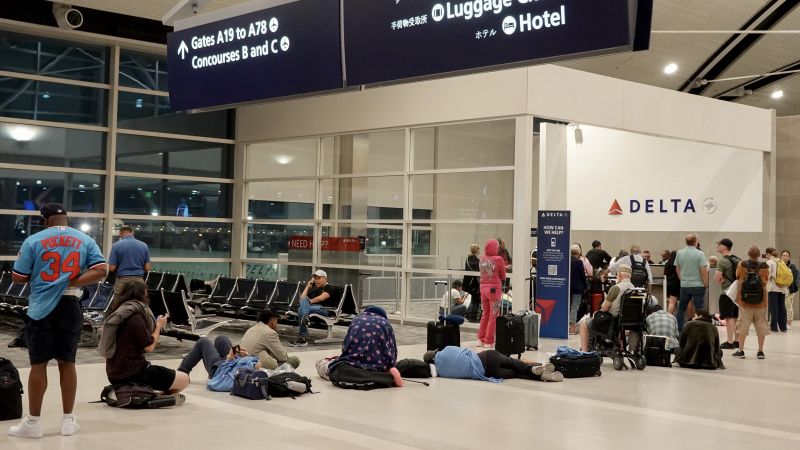Delta Air Lines experienced a service meltdown last week, leaving an estimated half million passengers stranded and frustrated at their inability to complete their trips or retrieve their belongings. Despite the anger and disappointment felt by many passengers, the reality is that most will likely continue flying with the airline in the future. This loyalty is often due to various factors such as limited choices for passengers who live near major airline hubs or the influence of frequent flyer accounts and branded credit cards that bind customers to a specific airline.
One such loyal customer is Don Hooper, who has accumulated a million miles in his Delta frequent flyer account over years of flying with the airline. Despite being stranded in Salt Lake City for three days and having to purchase their own tickets to get home, Hooper remains committed to Delta. While disappointed with the lack of communication and assistance during the meltdown, he and his wife have numerous trips planned with the airline due to their frequent flyer miles and past positive experiences.
The service meltdown was caused by computer problems that disabled Delta’s tracking system for pilots and flight attendants, resulting in thousands of canceled flights. While the issues were eventually resolved, Delta faced criticism for its handling of the situation compared to other businesses that quickly recovered from similar problems. Passengers like the Hoopers were fortunate to have resources to book accommodations during the disruption, but others faced challenges with basic needs such as food and baby supplies.
Despite the negative impact on passengers like Jeremy and Kaylee Jones, who missed part of their honeymoon due to flight issues, some travelers express hesitancy about flying with Delta in the future. While other airlines have seen demand bounce back after service meltdowns, the dominance of Delta in key markets like Atlanta gives them a competitive advantage. The hub system allows network carriers like Delta to limit competition on flights in and out of their hubs, making it difficult for passengers to switch to alternative airlines.
Ultimately, passenger behavior is driven by personal interests and convenience, with many relying on employer contracts or loyalty programs to choose their airline. While some may hold resentment towards Delta for the recent service meltdown, others recognize the efforts of airline employees trying to navigate the situation. Delta’s reputation for good service and strong performance statistics may also play a role in attracting customers back to the airline, despite past negative experiences. For longtime customers like Don Hooper, who values the consistency of service from Delta over decades of flying, loyalty to the airline remains unwavering.















